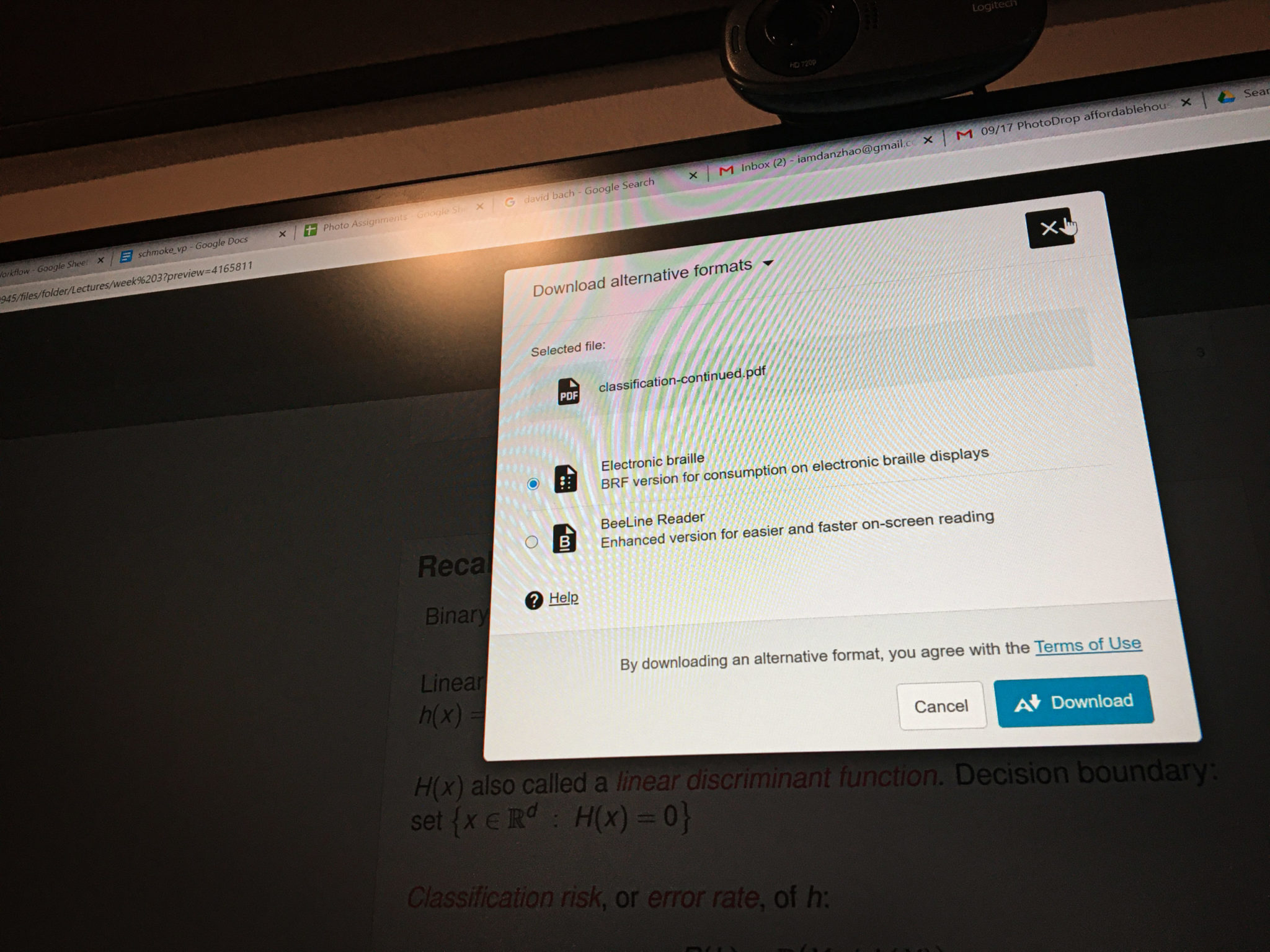
Daniel Zhao
An increasingly virtual world has created a mixed bag for students with disabilities — exacerbating accessibility issues in some cases while simultaneously allowing for more flexibility.
Online instruction can often make course material — from lectures to readings — inaccessible to certain students for a variety of reasons, such as the need to look at screens for long periods of time due to class format. But while virtual learning creates specific challenges for students with disabilities, it also allows for greater flexibility as students complete courses and attend meetings from home, according to Disability Empowerment for Yale President Mafalda von Alvensleben ’23 and founder and Co-Chair of Divine Abilities Ben Bond DIV ’22. Both von Alvensleben and Bond said they hope the University will work to accommodate students with disabilities and remember the benefits of online learning this semester as they plan the future of instruction at Yale.
“Physically speaking, it’s a lot less stressful,” von Alvensleben — who identifies as having a physical disability — said of getting to class. “I hope that the option of attending events online through Zoom remains because I think it allows for a lot more people with disabilities to attend more events without having to be at the physical space.”
Director of Student Accessibility Services Sarah Scott Chang wrote in an email to the News that her office has been receiving different kinds of requests since the University moved instruction online.
Specifically, she said students face challenges including increased screen time and poorly recorded audio quality.
“We are not seeing many requests related to the physical space, but are seeing many novel requests because of the new online environment,” she wrote.
Von Alvensleben noted that online environments often pose challenges for some of her peers. She said that a lack of in-person interactions may negatively impact people with mental health-related disabilities.
She also pointed out that Yale does not universally provide captions for its lectures, adding that many classes’ PDFs are not compatible with screen reading software. For students with sensory impairment, the lack of such an option can make completing readings all the more challenging.
Still, other students may struggle in classes that require students to have cameras on during the course, according to Bond.
“[For] a number of my colleagues — members of our group who are on the spectrum — having a camera on them at all times is a sensory overload to the point where they cannot function within the classroom,” he said. “I don’t think professors or administrators are even aware that that’s an experience that people are having.”
Bond said specialists at the Poorvu Center are teaching professors how to make their classes more accessible, and University librarians are working to make accessible documents.
Digital Projects and Technology Librarian Graziano Krätli, who works at the Divinity Library, is part of this effort. He trains and supervises student employees who check course materials in Canvas for digital accessibility and fix them as needed.
“It’s tedious work, but it’s important because it allows students who may have difficulty reading these documents in [a] PDF, Word or PowerPoint format to listen to them with the help of a screen reader,” he said.
Krätli added that “the University has made a significant effort and also a financial commitment to address diverse abilities in the student population,” citing the creation of the Student Accessibility Services office and the hiring of sign language interpreters each semester.
Chang also noted that SAS has noticed requests for test accommodations decrease as professors rethink how they evaluate students this term. She added that new assessment methods are affording some students better chances to display their full knowledge and that this is providing “more equitable classroom environments.”
Bond said professors have also started accepting written responses as a form of discussion section participation, something he said has benefitted his peers.
“I am hopeful that an unintended ramification of this shift to remote learning will be greater accessibility in the future for students with and without a disability,” Chang wrote. “Many aspects of university life are being re-examined and adjusted, and these adjustments often provide greater accessibility for all students.”
DEFY was founded in 2016, according to the group’s website.







